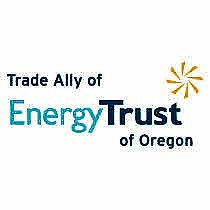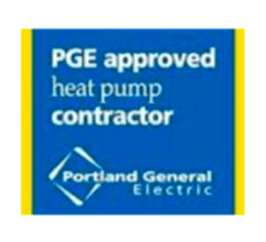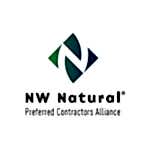Most households depend on a furnace to stay comfortable during the colder months of the year. Because furnaces are high efficiency, low noise, and have long lifespans, they are a good fit for many households. But choosing the right type of furnace for your home and family can be overwhelming. In Portland, between the chilly winters and wet springs, selecting an efficient heating system for your family is an important decision. This guide helps simplify your decision-making by outlining the pros and cons of various furnace types to help you stay warm and cozy year-round.
How Portland’s Climate Plays a Part
Portland’s climate is characterized by its chilly, damp winters, occasional snow, and mild, wet springs, which demands a reliable heating solution that can efficiently combat the cold. Furnaces are exceptionally suited for this environment due to their high efficiency and ability to generate consistent warmth. Their long lifespan ensures household comfort through numerous Pacific Northwest winters. By effectively maintaining a cozy indoor atmosphere, furnaces keep your family comfortable no matter the weather outside.
What is a Furnace?
A furnace is a heating system designed to regulate indoor temperatures, providing warmth and comfort during cold weather. Operating as a central component of your home’s HVAC system, often paired with an air conditioning unit, a furnace heats air and then distributes that air throughout the house via ducts or direct ventilation. Furnaces come in various types, each using different fuel sources like natural gas, oil, electricity, or propane.
How Long Do Furnaces Last?
When selecting a furnace, it’s important to consider its longevity to ensure you’re making a sound investment for your home. On average, a well-maintained furnace can last anywhere from 15 to 20 years, although some models may continue to perform efficiently for even longer. Regular maintenance, such as annual inspections and timely repairs, can significantly extend the lifespan of your furnace.
Overview of Furnace Types
Understanding the different furnace types is the first step in making a decision. Furnaces are primarily categorized by their energy sources, each having unique advantages and disadvantages.
Natural Gas Furnaces
Natural gas furnaces are highly popular, especially in regions with variable weather, like the Pacific Northwest.
Pros of Natural Gas Furnaces
Natural gas furnaces are known for their efficiency and cost-effectiveness. They heat homes quickly and tend to have lower operational costs compared to oil and electric furnaces. Additionally, natural gas furnaces are better for colder climates by heating up quickly.
Cons of Natural Gas Furnaces
On the downside, natural gas furnaces require a connection to a natural gas line, which might not be available in all areas. The installation cost can also be higher if your home currently doesn’t have a gas line. Also, natural gas furnaces can have higher maintenance costs.
Oil Furnaces
Oil furnaces are another option, particularly suitable for homes in colder climates.
Advantages of Oil Furnaces
Oil furnaces are highly efficient at heating, making them ideal for extremely cold winters. They also tend to have longer lifespans and can generate more heat per BTU than natural gas. For homeowners without access to natural gas lines, oil furnaces provide a viable alternative.
Disadvantages of Oil Furnaces
However, oil furnaces come with their own set of challenges. They require regular maintenance, including frequent oil changes and cleanings. Additionally, oil prices can be volatile, leading to fluctuating heating costs. Storage is another consideration, as you’ll need space for an oil tank.
Electric Furnaces
Electric furnaces offer another route, particularly appealing due to their simplicity and lower upfront costs.
Benefits of Electric Furnaces
Electric furnaces are easier to install and maintain compared to gas and oil furnaces. They don’t require a gas line or oil storage tank, making them more straightforward. Additionally, they are a good option for homes where natural gas isn’t available.
Drawbacks of Electric Furnaces
The primary drawback is their operational cost. Often, using electricity can lead to higher energy bills. They also struggle to keep a larger home warm. Electric furnaces also take longer to heat a home compared to their gas and oil counterparts, making them less efficient in colder climates.
Differences Between Electric Furnaces and Heat Pumps
It can seem that an electric furnace and a heat pump are the same, but they actually function differently. An electric furnace uses electric resistance heating coils to heat your home. In contrast, a heat pump works like your refrigerator, transferring heat from one area to another instead of generating it, making it more energy-efficient in moderate climates. Heat pumps can also provide cooling, serving a dual purpose in your home, while furnaces will need to be paired with an air conditioner for cooling during summer.
High-Efficiency Options
Energy efficiency in furnaces is defined by the ability to convert fuel into heat effectively while minimizing waste. An energy-efficient furnace not only reduces utility bills due to its lower fuel consumption but also positively contributes by decreasing overall energy demands and reducing greenhouse gas emissions.
For environmentally conscious homeowners, high-efficiency furnaces are a great option. These furnaces consume less energy while providing the same amount of heat, translating to lower utility bills and a smaller carbon footprint.
What to Look for in High-Efficiency Furnaces
When shopping for high-efficiency furnaces, look for models with high Annual Fuel Utilization Efficiency (AFUE) ratings. ENERGY STAR-rated furnaces are typically a good bet, as they meet strict efficiency guidelines set by the Environmental Protection Agency and might come with rebates and incentives.
- Annual Fuel Utilization Efficiency (AFUE): This rating measures how effectively a furnace converts fuel into heat. A higher AFUE percentage means greater energy efficiency. For instance, a furnace with a 90% AFUE converts 90% of its fuel into heat, while the remaining 10% is lost as exhaust.
- Energy Star Certification: Products that earn the ENERGY STAR label meet strict energy efficiency criteria set by the U.S. Environmental Protection Agency. Choosing ENERGY STAR-certified furnaces or heat pumps ensures you’re investing in a product that’s designed to consume less energy, leading to cost savings and reduced environmental impact.
Maintenance Expectations for Your Furnace
Regular maintenance is essential for ensuring the longevity and efficient operation of your furnace. The cornerstone of furnace upkeep is an annual inspection by a qualified HVAC technician. This inspection often includes cleaning and reviewing the major components of your furnace, such as the blower, burners, and heat exchanger.
In addition to professional servicing, there are routine tasks homeowners should perform, such as changing or cleaning air filters every one to three months. This simple task helps maintain airflow and improve indoor air quality while reducing the strain on your system. It’s also vital to keep vents unobstructed and to check thermostats for accuracy. By staying proactive with your furnace maintenance, you will ensure that your home stays comfortable throughout the seasons.
Which Furnace is Right for Your Home?
Selecting the right furnace involves considering several factors, including your home’s heating needs, budget, and Portland’s specific climate.
Assessing Your Home’s Heating Needs
Start by assessing your home’s heating requirements. Consider the size of your home, existing insulation, and specific areas that might require more heat.
Consulting a Professional
Consulting a professional can provide valuable insights tailored to your home. Professionals can offer guidance on the most efficient and cost-effective options based on your specific needs and circumstances.
Furnace Experts in Portland
Navigating the maze of furnace types doesn’t have to be daunting. With over 70 years of experience, Jacobs Heating & Air Conditioning will help you navigate the pros and cons of natural gas, oil, and electric furnaces so you can make an informed decision that best suits your home and lifestyle. If you’re interested in high-efficiency furnace installation in your Portland, Oregon, or Vancouver, Washington home, contact Jacobs Heating and Air Conditioning to talk to an HVAC specialist about your options.
By investing in routine maintenance, you can stay cozy year-round with no surprises. No matter what you need, we’re always just a phone call away.










